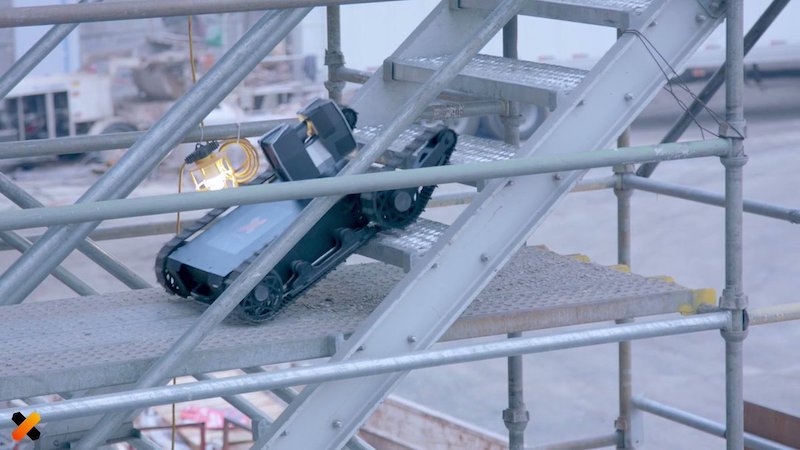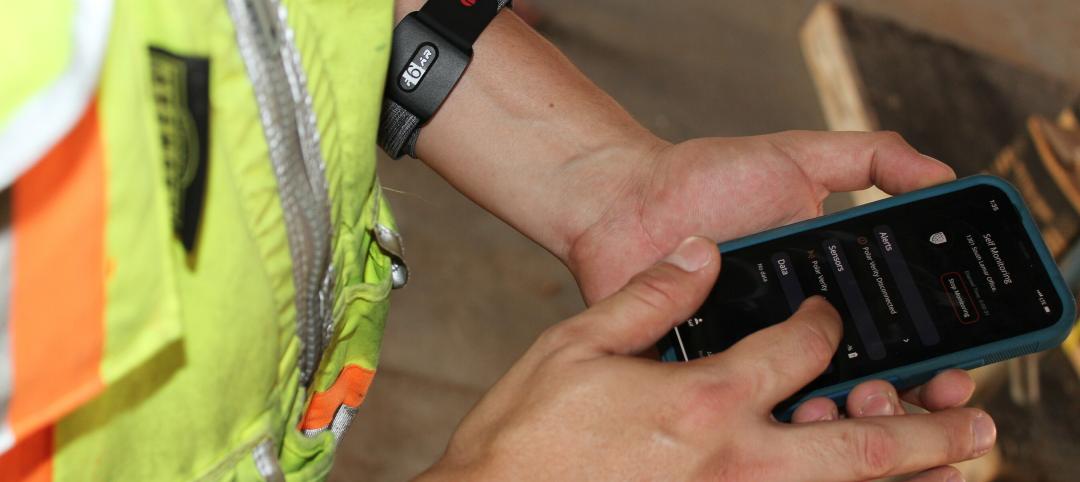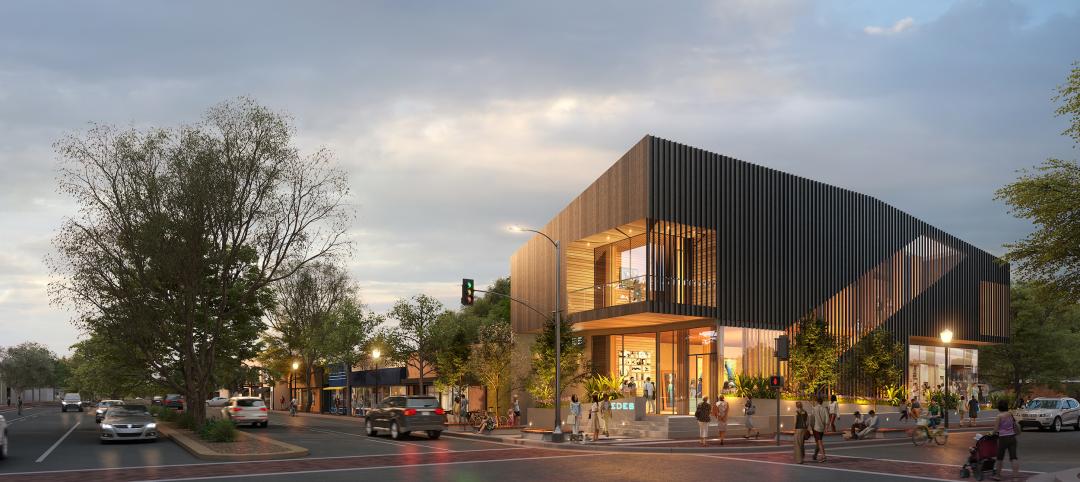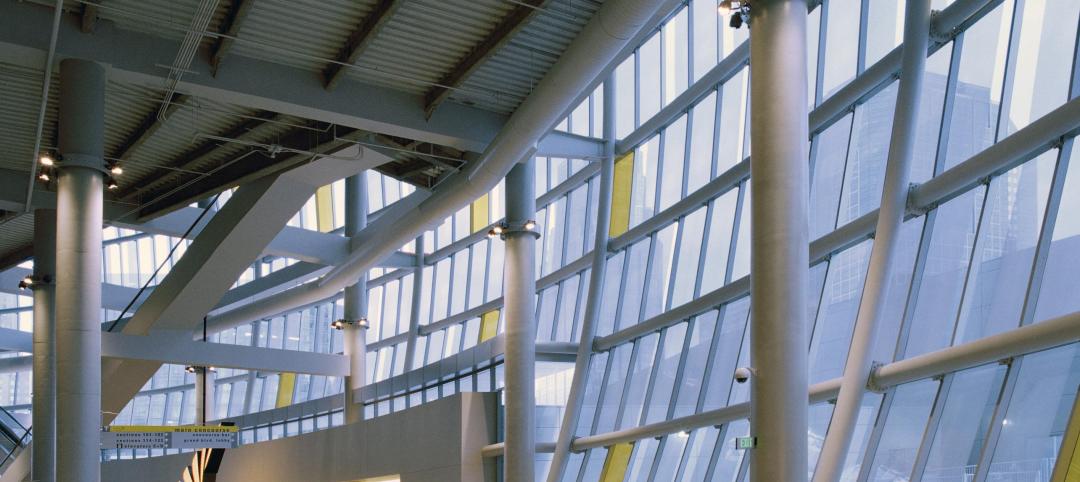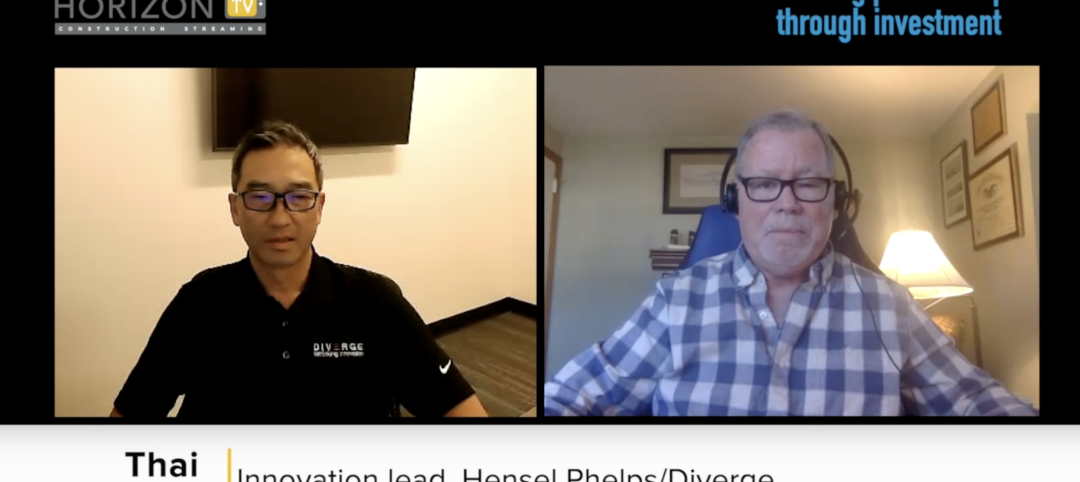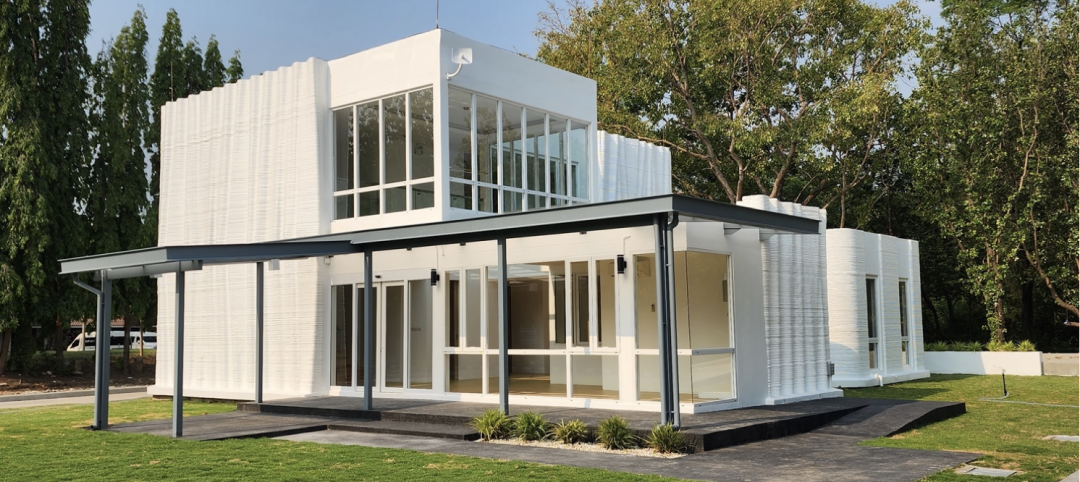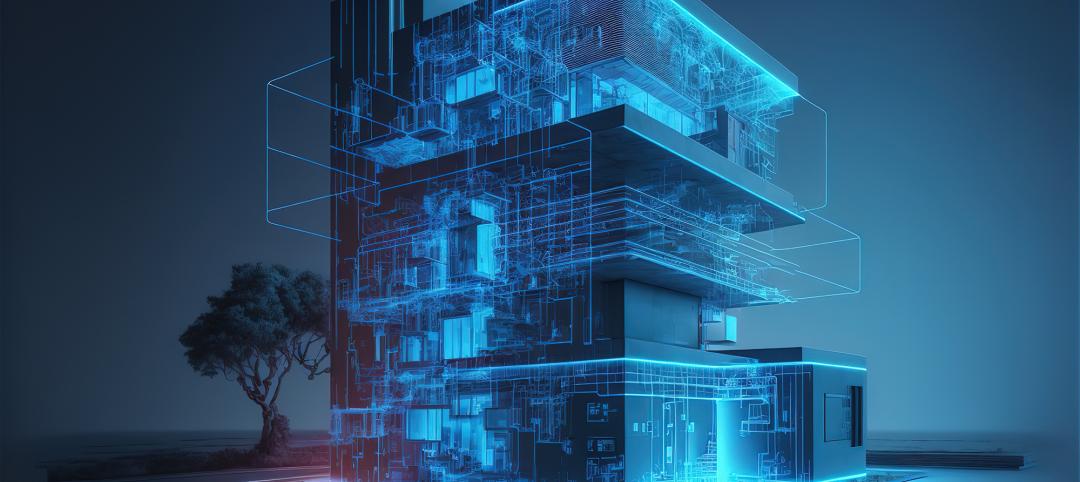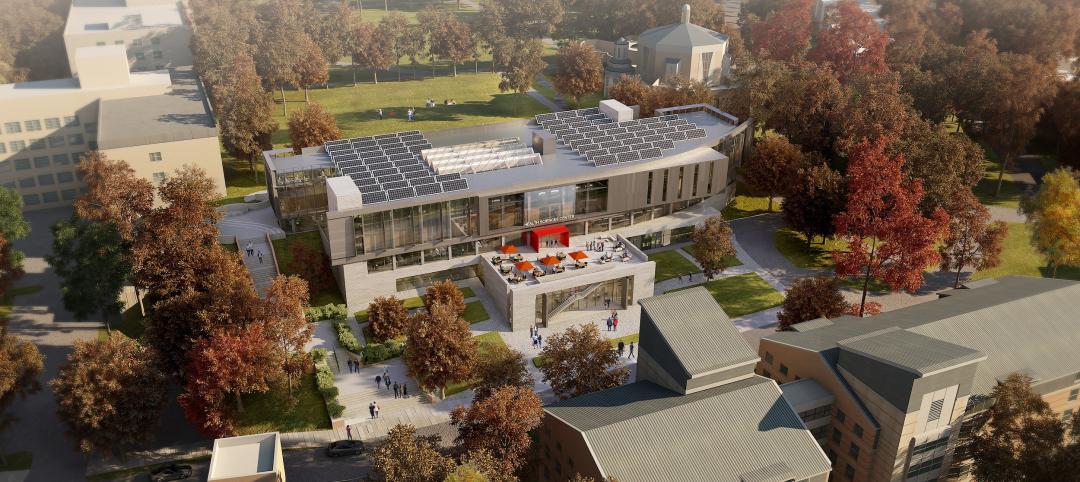The larger a construction project is, the more complicated it is going to be to manage. Small oversights or errors can lead to exponentially greater losses in time and money.
Doxel, a new construction productivity solution, claims to simplify the construction management process to help avoid these costly loses. Doxel’s preferred solution? Robots equipped with new artificial intelligence-based computer vision software.
In addition to drones capturing the site from above, Doxel uses rovers to comb through the site and gain the most accurate, up-to-date information. Part WALL-E, part MSE-6 mouse droid from “Star Wars,” Doxel’s self-directing robots survey building sites each day to capture HD imagery and laser scans at all stages of construction. The robots can traverse uneven terrain, multiple terrain types such as rock, concrete, or dirt, and can even climb stairs. Once in the correct position, the robot will stop and take a 360-degree scan of a space before moving on to the next area.
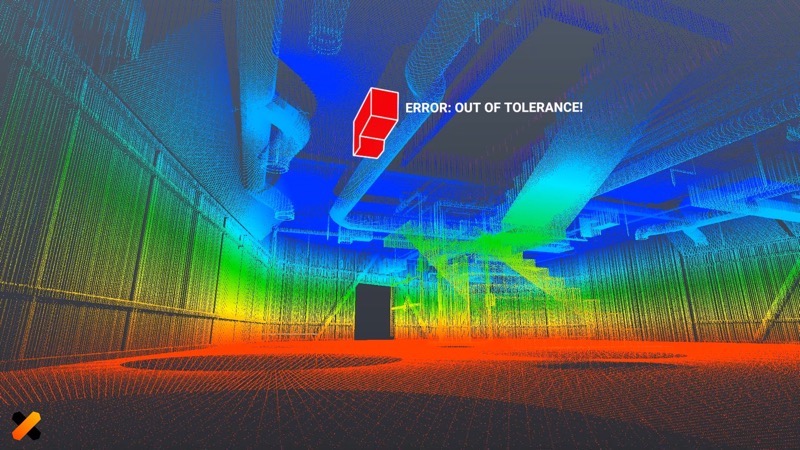 Courtesy Doxel.
Courtesy Doxel.
Working behind the software is a 3D semantic understanding algorithm developed by Doxel. This algorithm classifies objects in real-world construction environments with a high level of reliability. 3D computer vision was used because a 3D neural network, theoretically, requires fewer datasets for training than 2D. This new computer vision algorithm avoids the issues commonly associated with scans such as occlusion and poor visibility. It also is able to interpret clutter from installed materials.
Doxel’s algorithms classify installed components and measure quantities in real-time. This data is then cross-referenced with the project estimate to provide instant feedback of where a project stands financially. The software calculates earned value for thousands of line items to provide an exact amount owed for a day’s work.
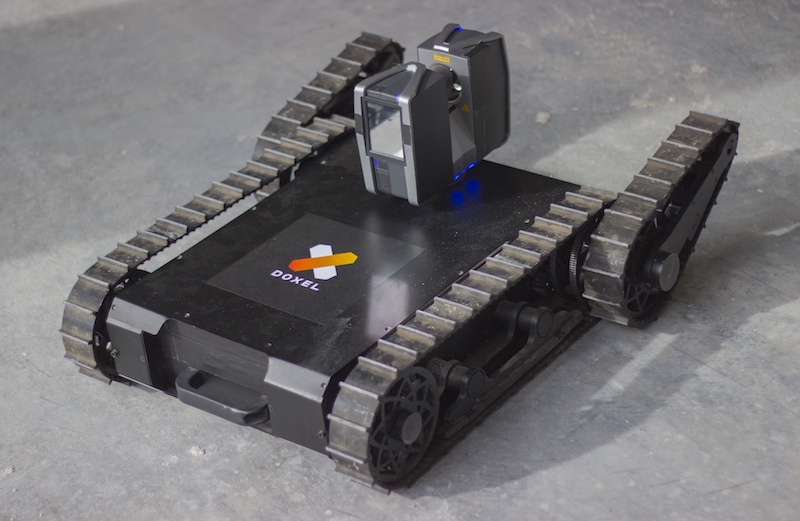 Courtesy Doxel.
Courtesy Doxel.
Doxel also tracks model-to-field deviations instantly to catch and correct errors early, before they cost time and money to rectify. The AI software deep links to the project schedule and detects when a crew falls behind. Alerts are sent via an integrated app notifying everyone of the delay so managers can re-prioritize and optimize labor
productivity.
Integrated cloud software makes it easy to track progress over time for things like plumbing, electrical, and mechanical. In one case study, Doxel increased productivity by 38% and helped the project team deliver the project 11% under budget.
Related Stories
Mechanical Systems | Jun 16, 2023
Cogeneration: An efficient, reliable, sustainable alternative to traditional power generation
Cogeneration is more efficient than traditional power generation, reduces carbon emissions, has high returns on the initial investment, improves reliability, and offers a platform for additional renewable resources and energy storage for a facility. But what is cogeneration? And is it suitable for all facilities?
AEC Innovators | Jun 15, 2023
Rogers-O'Brien Construction pilots wearables to reduce heat-related injuries on jobsites
Rogers-O'Brien Construction (RO) has launched a pilot program utilizing SafeGuard, a safety-as-a-service platform for real-time health and safety risk assessment. Non-invasive wearables connected to SafeGuard continuously monitor personnel to prevent heat exhaustion on jobsites, reducing the risk of related injuries. RO is the first general contractor to pilot this program.
Mass Timber | Jun 13, 2023
Mass timber construction featured in two-story mixed-use art gallery and wine bar in Silicon Valley
The Edes Building, a two-story art gallery and wine bar in the Silicon Valley community of Morgan Hill, will prominently feature mass timber. Cross-laminated timber (CLT) and glulam posts and beams were specified for aesthetics, biophilic properties, and a reduced carbon footprint compared to concrete and steel alternatives.
Engineers | Jun 5, 2023
How to properly assess structural wind damage
Properly assessing wind damage can identify vulnerabilities in a building's design or construction, which could lead to future damage or loss, writes Matt Wagner, SE, Principal and Managing Director with Walter P Moore.
Cladding and Facade Systems | Jun 5, 2023
27 important questions about façade leakage
Walter P Moore’s Darek Brandt discusses the key questions building owners and property managers should be asking to determine the health of their building's façade.
Office Buildings | May 15, 2023
Sixteen-story office tower will use 40% less energy than an average NYC office building
This month marks the completion of a new 16-story office tower that is being promoted as New York City’s most sustainable office structure. That boast is backed by an innovative HVAC system that features geothermal wells, dedicated outdoor air system (DOAS) units, radiant heating and cooling, and a sophisticated control system to ensure that the elements work optimally together.
AEC Tech Innovation | May 12, 2023
Meet Diverge, Hensel Phelps' new ConTech investment company
Thai Nguyen, Director of Innovation with Hensel Phelps, discusses the construction giant's new startup investment platform, Diverge.
3D Printing | May 12, 2023
World’s first 3D-printed medical center completed
3D construction printing reached new heights this week as the world’s first 3D-printed medical center was completed in Thailand.
AEC Tech | May 9, 2023
4 insights on building product manufacturers getting ‘smart’
Overall, half of building product manufacturers plan to invest in one or more areas of technology in the next three years.
University Buildings | May 5, 2023
New health sciences center at St. John’s University will feature geothermal heating, cooling
The recently topped off St. Vincent Health Sciences Center at St. John’s University in New York City will feature impressive green features including geothermal heating and cooling along with an array of rooftop solar panels. The geothermal field consists of 66 wells drilled 499 feet below ground which will help to heat and cool the 70,000 sf structure.


